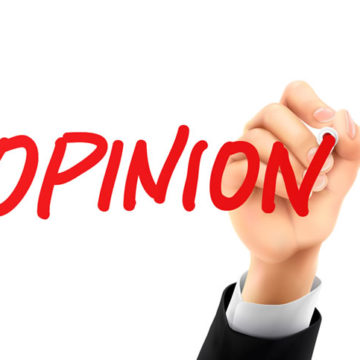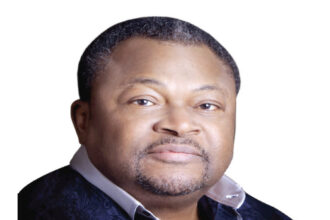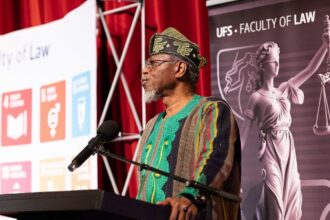LET me begin by saying that, as a freelance writer with a penchant for writing on important national matters, I consider the issue of His Imperial Majesty, Soun of Ogbomoso, Oba Gandhi Olaoye, kneeling before the General Overseer of the Redeemed Christian Church of God, Pastor Enoch Adejare Adeboye, as monumental and historic.
From time immemorial, the relationships between kings and prophets have been sacrosanct, albeit they have not always been straightforward or harmonious. The Bible has showcased three types of relationship between the duo – where the relationship is anchored on admiration, trust, and cooperation (e.g, Prophet Elisha and King Joash of Israel); where it is shrouded in disagreement, hostility, and conflict (e.g, Prophet Elijah and King Ahab); and where it is characterised by detachment, inexperience, or lackadaisical attitude (e.g, Prophet Samuel and King Saul).
Of these three kinds, the first is the best. The king wants to meet the prophet to know the heart of God on issues pertaining to his reign and to make the prophet pray for him and his kingdom while the prophet wants to be assured that the king will impact positively on the society.
Since the story of Gandhi kneeling before Adeboye surfaced in the news and the social media, tantrums and innuendos have been thrown at both Gandhi and Adeboye. It is on this note that I want to formulate four keys that can ensure the sustainability of a cordial relationship between kings and the prophets and the preservation of culture and spirituality without one offending the other.
The first thing to note is that the king’s relationship with the prophet is premised on the recognition of the Almighty by both. So, any God-fearing prophet or king will want to revere God by bowing before Him at every available opportunity. Gandhi indeed grabbed that opportunity when he knelt in prayer on his first outing as a king while Adeboye prayed. He was kneeling before the Almighty, not Adeboye.
The second thing to note is that impartation is not culture-bound; it is power-bound. Thus, for Adeboye to lay his hands on the king’s head is a factor of flow of power. There had been situations where, by the compelling power of anointing, kings and presidents were constrained by forces beyond their control to bow before Adeboye.
The third thing is that the relative power of anointing determines when a king pays homage to a prophet and vice-versa. As a pastor of RCCG, Gandhi is sufficiently knowledgeable to know that power is contingent upon anointing. For example, the superiority of a prophet over a king is demonstrated in the story of Samuel and Saul. In 1 Samuel 28, Saul prostrated himself before Samuel. Also, in 2 Kings 13:14, King Joash addressed Prophet Elisha as “my father.” A vice-versa power shift is recorded in 1 Kings 1:23 where Prophet Nathan prostrated himself before King David.
Fourth, the prerogative to counsel a king belongs to the prophet exclusively but not oppositely. The reason God has raised the prophetic office is to counterbalance the kingship office so as to ensure accountability. The prophet thus disciples the king by sticking God’s covenant back in his face.
Be that as it may, some people may argue that the examples quoted regarding Israel’s prophets and kings may not hold water because of cultural differences. My take on this is that the relationship between spirituality and culture cuts across geographical delineation; it is global in nature. Having explored this relationship for ages, researchers have come to the conclusion that it is intricate and fascinating. All over the world, researchers have pinned the relationship down to three dimensionalities – independent, interdependent, and dynamic.
First, there is the possibility of spirituality and culture being independent of each other, thus, making the prophet to align himself with spiritualities without having any personal or private relationship with any particular culture. While the duty of a king stops at culturally administering his domain, that of the prophet includes seeking the face of God always concerning the king and ensuring that he does not go astray in the ramifications of carrying out his onerous duty. Thus, the prophet’s spiritual authority over a king becomes obvious.
Another possibility is that of an interdependent nature of spirituality and culture which allows both to influence and shape each other in diverse forms like doctrines, morality, and social norms. Even with this, prophets mediate between the spiritual and the cultural while kings are restricted to culture alone.
The most significant dimensionality of the relationship between spirituality and culture is their dynamic nature. Gandhi’s critics may not have realised that spirituality and custom have changed progressively and beyond contexts by virtue of cross-culturalism, incontestable historicity, enlightening civilisation, social development, technological advancement, and personal encounters.
With this, there has been an adaptation of kings’ culturalism and spiritualities to accommodate the new trends. Indeed, most cultural assumptions have been challenged to give room for new spiritual possibilities. This seems to be the case with Gandhi who had, before becoming king, adopted Christianity, emerging from new religious movements, as an alternative form of spirituality. This is where Gandhi and Adeboye’s critics miss out.
In conclusion, I want to observe that Gandhi has successfully bitten the bullet by starting his reign on a tabular rather devoid of unnecessary intimidation and meddlesomeness. That he has taken the bit between his teeth is highly commendable. My advice to him is that he should not halloo till he is out of the woods. He should also take cognizance of the proverb: “all is grist that comes to the mill” by deploying his experiences over the years meaningfully to help Ogbomoso. Also, to our other revered kings, I suggest that it is high time you listened to the shepherds of this nation so as to know the mind of God for your successful reign.
• Babatunde, a legal practitioner, writes from Zagreb, Croatia.
READ ALSO FROM NIGERIAN TRIBUNE








